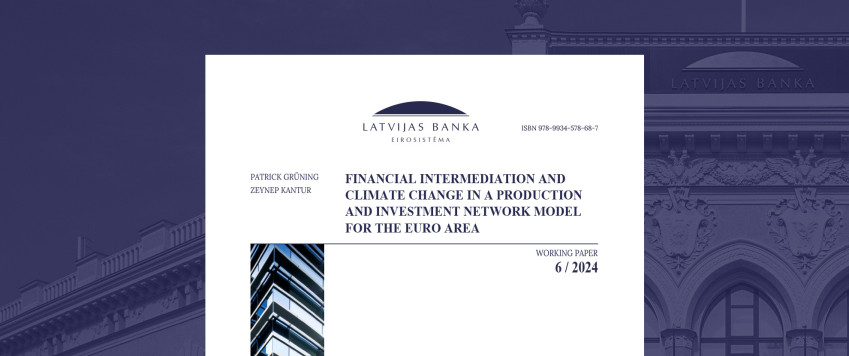Financial Intermediation and Climate Change in a Production and Investment Network Model for the Euro Area
Working paper 6/2024

This paper introduces financial intermediaries, who engage in lending to firms for investments and buying public bonds issued by the government, and unconventional monetary policy in the form of quantitative easing or tightening into a rich New- Keynesian multi-sector E-DSGE model with production and investment networks. Due to the strong input-output linkages between sectors, almost all policies are found to be not effective in facilitating a green transition.
The policies considered are sector-specific bank regulation policies, unconventional monetary policies, various carbon tax revenue recycling schemes, public green capital investment, and sector- specific investment tax/subsidy policies. Only if carbon tax revenues are used to build public green capital, thereby boosting productivity of the green sectors, the trade-off between achieving positive economic growth and reducing carbon emissions is fully resolved.
Textual error
«… …»


